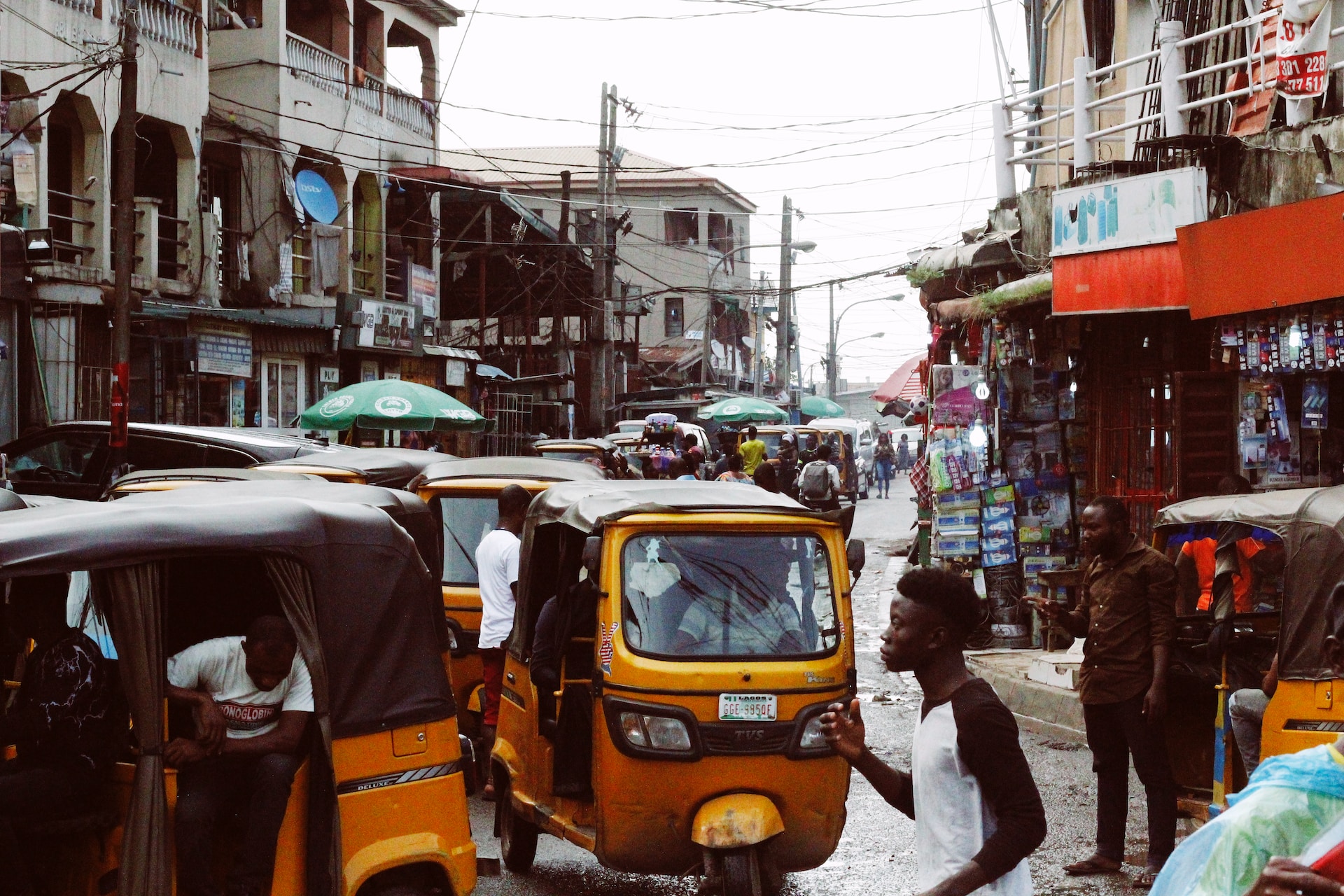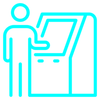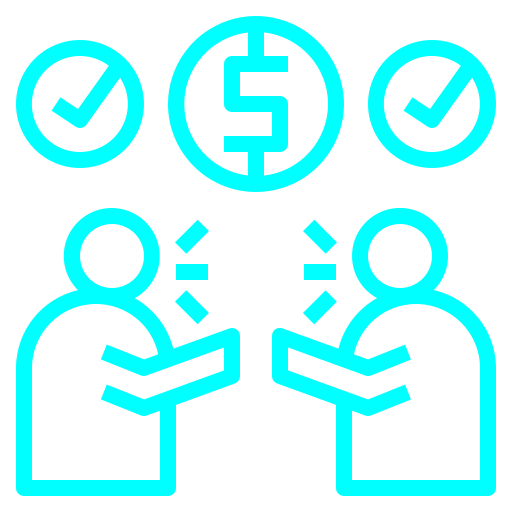From how to get naira to cultural attitudes regarding money, here’s everything you should know about the local currency and banking system in Nigeria.
Nigeria’s official national currency, the naira, was first issued by the Central Bank of Nigeria in 1973. As a primarily cash-based economy, you’ll likely be handling most of your financial transactions here using naira banknotes and coins, so it’s important to learn all about Nigeria’s national currency ahead of your visit to West Africa.
- Travel Money in Nigeria: Everything You Need to Know
- Nigerian Naira Basics
- How to Get Nigerian Naira
- Cost of Goods and Living in Nigeria
- Importing and Exporting Nigerian Naira
- Counterfeit Nigerian Naira
- Using US Dollars in Nigeria
- Using Credit Cards in Nigeria
- Cultural Sensitivities Around Money
- Preparing for Your Nigeria Trip
Travel Money in Nigeria: Everything You Need to Know
Nigerian Naira Basics
- Currency Code: NGN
- Symbol: ₦
- Forms: Banknotes and coins
- Division: 1 naira = 100 kobo
- Countries of Use: Nigeria
Denominations
Nigerian naira is available in two physical forms: banknotes and coins.
- Banknote denominations: ₦5, ₦10, ₦20, ₦50, ₦100, ₦200, ₦500, ₦1000
- Coin denominations: 50 kobo, ₦1, ₦2
Nigerian Naira Exchange Rates
The current exchange rate for USD to NGN is: $1.00 = ₦778.62, though it constantly fluctuates.
Because exchange rates are so up and down, it’s essential to check the latest before changing any money. It’s recommended to shop around at different banks and currency exchange offices—that way you’ll ensure you get the best exchange rate.
How to Get Nigerian Naira
It can be tricky to find Nigerian naira outside its home country and due to the fluctuating exchange rate, it’s best to wait until you arrive in the country to either exchange your foreign currency for naira or make naira withdrawals. Major airports and points of entry will have both ATMs and currency exchanges for fast and easy access to cash as soon as you enter Nigeria.
Currency Exchanges
Nigeria has a booming currency-conversion black market, and you’ll find no shortage of currency exchanges in major cities. Most of these are illegitimate and will overcharge you and/or give you a poor exchange rate. They should be avoided at all costs. The safest places to exchange foreign currencies for naira are official banks or at authorized money changers.
The Sulah Bureau de Change and Everdon in Lagos are two of the most reputable and trustworthy currency exchanges in Nigeria. You can also typically exchange money at airports and major hotels, but hotels will rarely have the most favorable exchange rate.
Cash Advances at ATMs
ATMs are widely available in international airports and across big cities like Lagos—at banks, stores, and some big hotels—but become harder to find in rural areas. Using an ATM is also one of the best options for getting a fair exchange rate. Just be sure to talk to your bank about foreign transactions and international ATM fees so you’re not unpleasantly surprised when you check your account balance.
Travelers should take precautions when using ATMs. It’s best to only take out money in busy, well-populated areas. Practice common sense and don’t draw attention to yourself. Be aware of your surroundings, and watch for overly interested bystanders or card readers that capture your debit card’s data before proceeding.
Exchanging Currency at a Local Bank
Exchanging currency at local banks, like the First Bank of Nigeria, Zenith Bank, Guaranty Trust Bank, and Access Bank, is one of the safest ways to exchange your foreign currency for Nigerian naira. You’re also likely to get a good exchange rate.
In order to exchange money at a Nigerian bank, you’ll need to bring your passport as identification.
Cost of Goods and Living in Nigeria
Thanks to the favorable exchange rate, Nigeria is an extremely affordable travel destination for US travelers. Here are the average costs of some expenses you may have while exploring around Nigeria:
- Average daily expenditure: US$75 (budget) to $150 (high-end)
- Taxi: $0.65 starting rate
- Activities: $1.30 (entry fees) to $6.51 (starting rates for tours)
- Three-star hotel in city center: $30 to $50 per night
- Meals: $20 for three meals
Importing and Exporting Nigerian Naira
As long as you declare how much naira you have in cash upon entering and leaving the country, there are no limits on importing and exporting naira.
Counterfeit Nigerian Naira
Thanks to a recent redesign of the naira banknote, Nigeria is actively tackling issues with counterfeit naira and making it easier to identify fake bank notes. As long as you exchange your money or withdraw cash from official sources like banks or authorized money changers, the risk of being given counterfeit naira is significantly reduced.
If you do suspect you’ve been given fake naira, however, here are some differences to check for:
- Real naira is printed on high-quality paper with bright, vibrant colors, whereas fake banknotes are usually dull with poor paper quality.
- The black serial numbers on the banknote should turn green when under ultraviolet light.
- On the ₦1,000 note, there’s a gold foil on real banknotes that can’t be scratched off.
- Hold the banknote up to the light to look for a straight, black security thread running through the note.
If you are in possession of fake naira, head to the nearest police station to hand it over and report it. You’ll want to tell the police as much information about where you were given the fake naira as possible.
Using US Dollars in Nigeria
Even though the naira is the official currency of Nigeria, you’ll find that USD is accepted at tourist-centered places like international airports, major hotels, and popular attractions. However, to make up for the exchange rate, you may be charged a higher rate in USD than in naira. It’s best to stick with naira instead of depending on USD.
Using Credit Cards in Nigeria
Although you can use credit cards, like Visa and Mastercard, in Nigeria, it’s still a primarily cash-based economy. You’ll likely be able to use your card at high-end places, like hotels and restaurants, as well as chain stores, but otherwise, it’s best to stick with cash and use a debit card for cash withdrawals. Credit card fraud is also a significant issue, so if you do want to use your card, it’s best to do so sparingly and only in reputable establishments.
Similarly, since credit card use isn’t widespread, don’t count on most places having contactless payments or accepting travelers checks.
Before traveling to Nigeria, remember to inform your credit card company about your time abroad. That way your transactions won’t be marked as fraudulent, which could cut off access to your funds.
Credit Card Fees
If you opt for a cash advance, you may be subject to foreign transaction fees or currency conversion fees. Out-of-network ATM cash withdrawals can also incur a service charge.
Cultural Sensitivities Around Money
From tipping to haggling in Nigerian markets, here are some cultural sensitivities regarding money in Nigeria that you should be aware of as a traveler.
Tipping Etiquette in Nigeria
Tipping is not customary in Nigerian culture, as typically, in lieu of a tip, a service charge will be added to your restaurant or hotel bill. But even though tipping isn’t expected, it’s still always appreciated. If you do want to tip for good service in a restaurant, 10% is the norm. It’s also considered polite to tip your taxi driver by rounding up or adding a few extra naira. This is often referred to as a “dash” instead of a tip.
Bargaining and Haggling
Haggling is an age-old tradition in Nigerian markets and taking part is an exciting opportunity to connect with Nigerian culture and locals. Here are some tips for how to barter respectfully while in Nigeria:
- Stick to the larger central markets, where locals shop for the best deals.
- Dress simply and casually to avoid attracting attention and appear less likely to have a lot of money.
- Learning some local Pidgin slang can help with fetching you a lower price, but if you stand out as a foreigner, you’ll likely still be quoted at a slightly higher rate.
- Don’t stop at the first stall; the deeper you head into the market, the lower the prices will likely be.
- Don’t seem overly eager or interested in the item you’re truly interested in.
- If there’s something specific you’re shopping for, do some research on average prices before going out.
- Try out multiple stalls or stands to comparison-shop.
- Shopkeepers will usually offer the first price. From there, you can offer a lower rate (typically half, or a few naira cheaper).
- Walking away if the seller won’t meet your price can be used as a tactic to get a price drop.
- Don’t take it too seriously, and enjoy the process.
While it’s fine to haggle and barter in local Nigerian marketplaces, it’s not appropriate to do so in chain stores and retail stores.
Preparing for Your Nigeria Trip
Obtaining the proper visa is an essential part of planning your trip. At Entriva, we can easily and efficiently help you with every aspect of getting a Nigerian visa. Start your visa application process.
Doing your research before traveling helps you avoid complications and be prepared in case of an emergency. For more information on other aspects of travel to Nigeria, such as travel requirements, health and safety, and cultural customs, visit our Nigeria destination hub.







